News
-
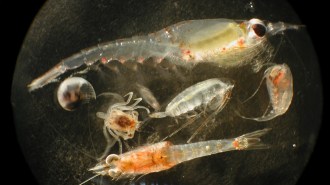 Oceans
OceansDeep-sea mining might feed plankton a diet of junk food
An analysis of mining plumes in the Pacific Ocean reveals they kick up particles sized similarly to the more nutritious tidbits that plankton eat.
-
 Astronomy
AstronomyEarly views of a supernova’s first moments reveal a lopsided blast
Some of the earliest images ever taken in the wake of massive star’s death give astronomers important clues about what triggers a supernova.
-
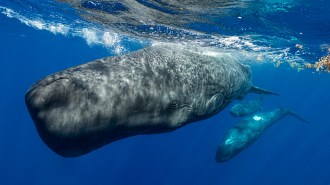 Animals
AnimalsAI eavesdropped on whale chatter. It may have helped find something new
Some “clicks” made by sperm whales may actually be “clacks,” but marine biologists debate what, if anything, that means.
- Animals
This fly’s flesh-eating maggot is making a comeback. Here’s what to know
After a decades-long hiatus, new world screwworm populations have surged in Central America and Mexico — and are inching northward.
By Carly Kay -
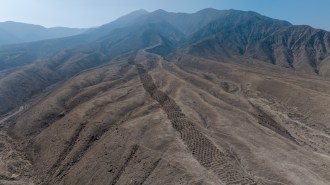 Archaeology
ArchaeologyPeru’s Serpent Mountain sheds its mysterious past
No, aliens had nothing to do with a winding 1.5-kilometer-long path of holes. First used as a market, the Inca then repurposed it for tax collection.
By Bruce Bower -
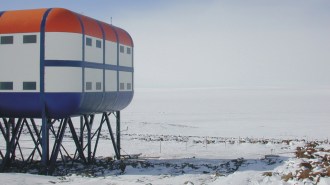 Science & Society
Science & SocietyIf another country tested nuclear weapons, here’s how we’d know
President Trump has argued the U.S. should test nuclear weapons because other countries are doing it. But scientific data suggest they’re not.
-
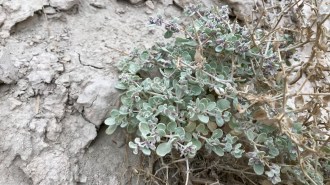 Plants
PlantsA special shape shift helps a shrub thrive in blistering heat
A microscope reveals an algae-like adaptation that might future-proof crop photosynthesis in extreme heat.
-
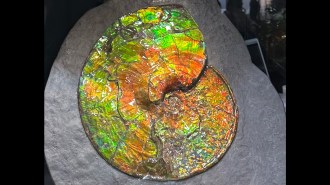 Materials Science
Materials ScienceWhat causes the rainbow shimmer of ammolite gems?
Ammolite gems’ fabulous colors arise from delicate assemblies of crystal plates.
-
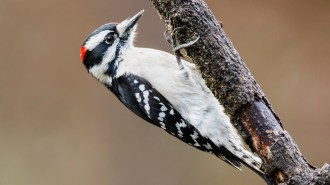 Animals
AnimalsWoodpecker hammering is a full-body affair
The birds grunt like tennis pros when generating their rat-a-tat, a performance strategy that may help stabilize core muscles.
By Anna Gibbs -
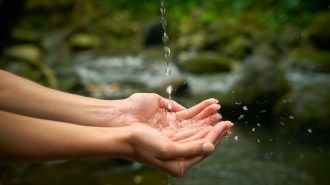 Physics
PhysicsWater jets may break up into droplets thanks to jiggling molecules
Streams of liquid form drops thanks to unidentified disturbances. It could be the jiggling of individual molecules.
- Physics
There’s math behind this maddening golf mishap
Math and physics explain the anguish of a golf ball that zings around the rim of the hole instead of falling in.
-
 Astronomy
AstronomySee the largest, most detailed radio image of the Milky Way yet
Supernova remnants, stellar nurseries and more populate the new edge-on view of the Milky Way as seen from Earth’s southern hemisphere.